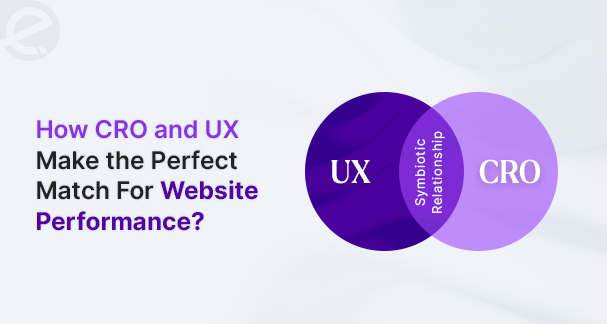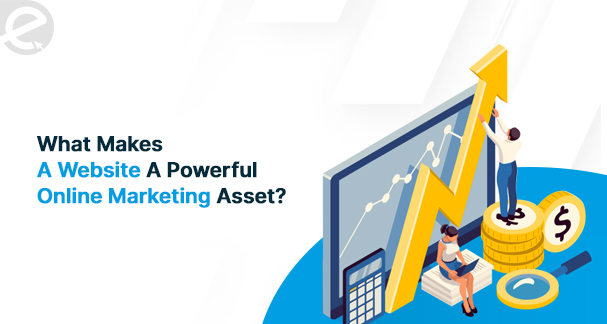
We Develop Websites Keeping Marketing in Mind
How Much Time It Takes For A Website To Rank Higher in Google?
 Nov. 14, 2022, 10:22 AM
Nov. 14, 2022, 10:22 AM- By Eclick Softwares and Solutions

To secure a budget and decide on SEO strategies, every brand owner should have a positive expectation about the Returns on Investment and website rank. Generally, SEO efforts pay off within a few months with the website appearing in Google SERP. The target keywords, industry and prevailing competition determine the months the website will take for ranking.
So, Until When Can A Website Rank in Google?
A website will take about 3 to 6 months for ranking on Google's first page, only when backed by relevant, quality and user-friendly content along with optimized websites. But when the competition is high or the website is yet to be optimized, then the website will take 6 to 12 months for ranking.
95% of published websites struggle to rank at the top within the first year. But 5% of top performers ranking in the top 10 could attain the rank after 61 to 182 days. In fact, the websites having stronger backlinks are in a better-performing position. An optimized website is the outcome of three pillars of SEO, namely content quality, technical structure and backlinks.
The good news is there are methods for the website to achieve the first page after clicking on a search, which should be practiced without delays. The protagonist to online success is search engine optimizing the website and the online presence on the whole. Let us now check out the ways for the website to arrive on Google SERP and improve its SEO rank.
1. Keywords
Compared to the lower-volume long tail keywords, the higher-volume head keywords are much more competitive. Popular keywords have many more competitors. So, focusing on the low-competition keywords render a privilege of reaching Google's first page. So, after performing a basic keyword search and building up the target keywords list for presenting the business and attached products/services, go ahead with optimizing them.
2. Consistent, Quality and Engaging Contents
Great quality content has no substitute. Users search for engaging content that further increases site traffic and enable the users to spend time on a website. Ultimately, the website ranks improve along with the authority on search results.
3. Domain Age And Content Page Age
Google's algorithm influences both domain-level factors as well as page-level factors. A five-year-old website created on a well-established domain cannot match the brand-new website. A newly built website from the scratch means it will take additional time for reaching rank one.
But the new and existing pages with a strong domain will most likely reach higher ranking faster.
Even content nature matters – new pages can be easily ranked when their contents are detailed and robust. Here, the high domain authority and the high average domain authority play the main role.
4. User Experience
Users enjoy the easy and to-the-point site to find the solutions to their queries. User-friendly websites indulge the users to stay longer and click through each page. This is how the website acquires higher conversion rates and higher ranking in the process.
5. Website Speed Improvements
Google does not rank the slow-loading websites which take more than 3 seconds since the user leaves automatically. Webpage speed and user experiences are connected as well as conversion rates. Websites should be optimized with fast loading speeds on desktops and Smart devices – to higher the ranking faster-ranking chances.
6. Backlinks
Google prioritizes high-quality links, and these should be used as backlinks. Using them appropriately, helps the website to organically rise higher and faster in Google search results. An URL with legal information matching user intent plays a high role here.
7. Expertise in Niche Marketing
A business has its own unique aspects which help it to rank higher in Google. The industry might be the same, but different keywords make the two businesses stand apart. The keywords unique to a business need optimization to come up when the users are searching. Niche marketing means focusing on a distinct and specific market to attract and target interested audiences.
8. Remaining On top of the Google Algorithm
Keeping up with Google's algorithm keeps the keywords fresh and boosts ranking improvements. The algorithm determines the rank.
9. Using the Header Tag
Implementing header tags enhances user experience, as they can figure out the context of the following explanation. Header tags organize paragraphs, making them easy to read by segregating them.
10. On-Page SEO
Website optimization procedures mean staying on top of keyword optimization, with regards to the page titles, body tags like H1 and H2, URL, image SEO, meta descriptions, meta titles, so on and so forth. Maintaining keyword density implies avoiding over-stuffing keywords.
SEO stands out as an excellent marketing channel for investment since it offers high returns after publishing websites. But the timeline you need to wait for to see the results depends on the industry, keywords competition level and technical structure. Even if SEO contents boost website rank takes a few months yet by understanding Google's used signals and likewise optimizing website and contents helps in improving ranking position.
Related Blog
- By Eclick Softwares and Solutions
- November 21, 2024
Why Good UX Design Mean B ...
UX creates a verified impact on CRO for a website. The users ...
Read More- By Eclick Softwares and Solutions
- November 11, 2024
How Important is a Websit ...
Where the customers land and browse to find their needed pro ...
Read MoreSearch Blog...
Recent Posts
Eclick Services







